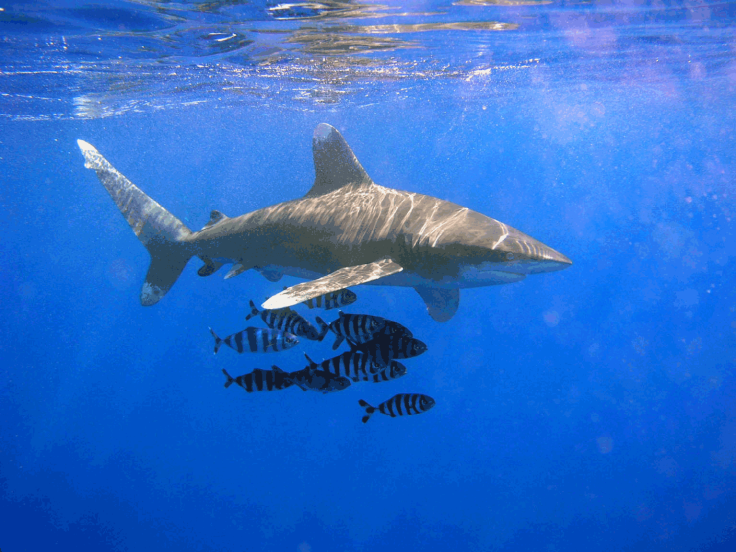Shark attack kills German tourist in Egyptian Red Sea resort

A German tourist has died after being bitten by a shark in the seas surrounding an Egyptian Red Sea Resort.
The incident happened on Sunday off the coastal city of al-Qusair, in what was described by officials as a rare shark attack and the first for at least five years.
The shark reportedly bit of the 53-year-old man's leg at the knee, according to an AFP report.
An Egyptian security official said the man's body had been moved to a local morgue and that officials were conducting an investigation.
"The 53-year-old tourist succumbed to his wounds after being attacked by a shark while swimming near a beach in the Red Sea resort town of Marsa Alam," Hossam Gamil, head of the province's ambulance service, told the Anadolu Agency.
In 2009, a French tourist was killed near Marsa Alam after a similar attack in which a shark bit off her leg.
The species of shark has not been confirmed although it's believed to be an oceanic whitetip.
Oceanographic researcher Jacques Cousteau described the oceanic whitetip as "the most dangerous of all sharks".
A spate of shark attacks in 2010 were carried out by oceanic whitetips, which killed a 70-year-old German tourist while she was snorkelling and three Russian tourists were wounded in another Red Sea resort.
Fear of further attacks forced the closure of a section of Sharm el-Sheikh for a week.
The German embassy in Cairo said it had been informed of the latest death but added no further comments.
The Egyptian government instigated a series of measures to ensure the safety of swimmers and scuba divers.
These included requiring hotels and dive centres assigning a shark watcher at beaches known to have frequent shark sightings, and inform visitors to evacuate the area if a shark is spotted in the water.
The tourism sector in Egypt has seen a sharp decline following the 25 January Revolution. However, the sector has grown 23.6% over the past year after a 39.3% setback in 2013.
© Copyright IBTimes 2024. All rights reserved.






